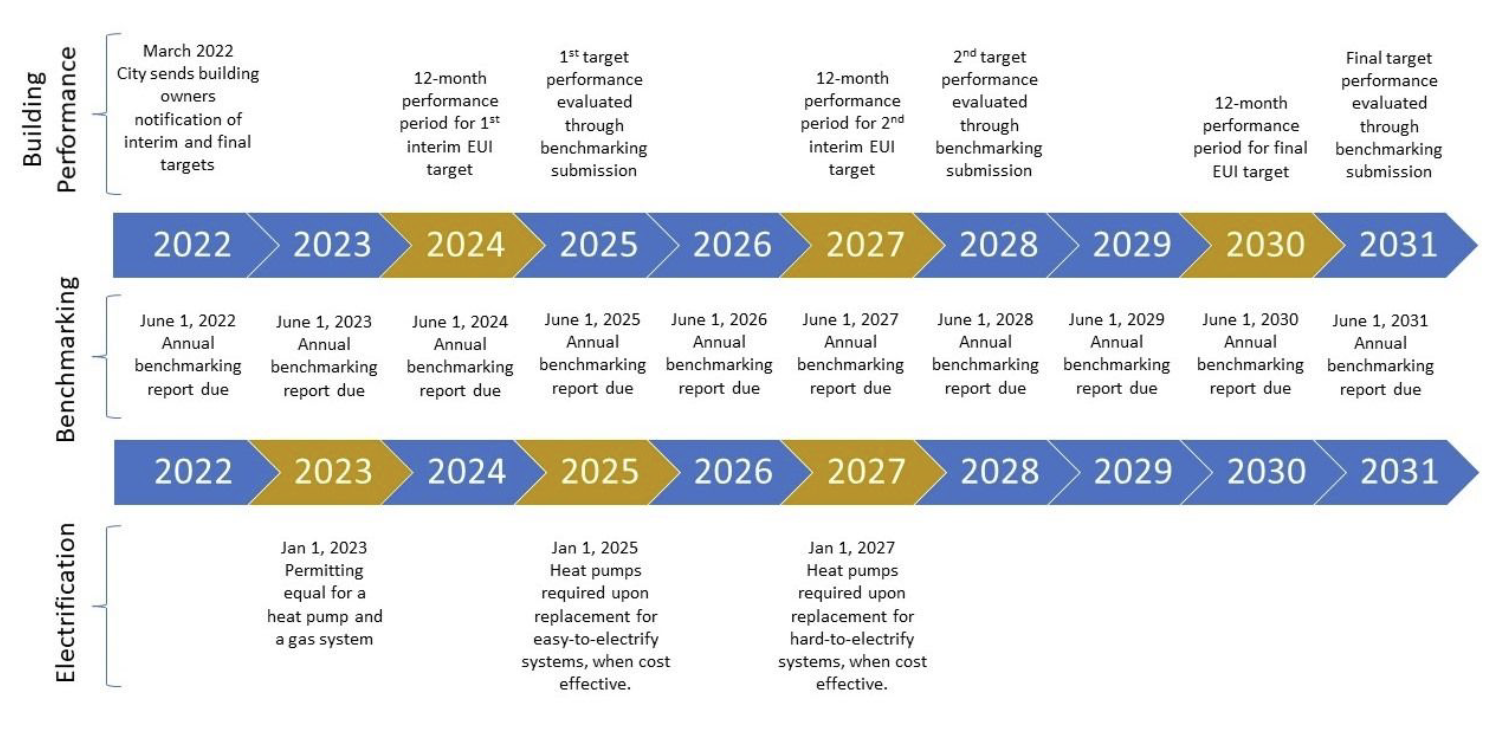|
CAHED Sustainability Committee Update
Check out the latest from the State of Colorado Benchmarking and Building Performance Standards, click on the link below for more details.
ASHE Sustainability Resources
The ASHE Energy to Care program provides tools to healthcare facilities to make continuous energy efficiency and sustainability improvements. Visit ashe.org/energytocare to learn more about some of their tools.
|
Sign up on the Energy to Care website at ashe.org/energytocare to receive consistent updates on tools, training, and news on improving efficiency and sustainability in the healthcare industry. |
Local Sustainability Policies
The urgency that is driving the sustainable construction market originates from policies developed by local and state governments. This section summarizes these policies, including specific rules for compliance, as well as the deadlines. |
State of ColoradoGoalsAccording to House Bill 19-1261 Climate Action Plan to Reduce Pollution, Colorado shall have statewide goals:
Benchmark requirementsThe "Energy Performance for Buildings" Statute (House Bill 19-1261) passed the Colorado General Assembly on June 8, 2021 and went into effect on September 6, 2021.
Building performance standardsHouse Bill 21-1286, the "Energy Performance for Buildings' statute, directed the Colorado Energy Office to convene a Task Force to develop Building Performance Standards (BPS) to meet sector-wide greenhouse gas (GHG) reduction targets. All buildings over 50,000 square feet should:
|
City of DenverGoalsHere are the goals outlined by the City of Denver related to their sustainability goals.
BenchmarkingBy June 1st each year all buildings in Denver at or over 25,000 square feet are required to annually assess and report their energy performance using the free ENERGY STAR Portfolio Manager tool. The City publishes the building energy performance data at energizedenver.org to enable the market to better value energy efficiency. Building performance standardsOwners of buildings 25,000 square feet and larger will demonstrate compliance with the energy performance targets by continuing to submit their annual Energize Denver Benchmarking Report. The submission reports the building's annual energy performance (energy use intensity or EUI) and will be used to verify that interim and final energy performance targets are met. Building owners do not need to submit additional documentation to show compliance. Building owners will need to monitor their energy performance to ensure they are on track to meet their interim and final energy performance targets and take necessary actions to improve their energy performance. Buildings must be performing at or below their interim target EUIs in each interim target year (i.e., 2024 and 2027) and maintain performance each year until the next target is due. Below is a sample timeline of the compliance process.
More information on Building Performance requirements can be found on the City's website at https://denvergov.org/Government/Agencies-Departments-Offices/Agencies-Departments-Offices-Directory/Climate-Action-Sustainability-Resiliency/High-Performance-Buildings-and-Homes/Energize-Denver-Hub/Regulation-Basics/Performance-Requirements |
City of BoulderGoals
For more information on Boulder's sustainability goals, refer to their website at: |
City of Fort CollinsGoals
The City has compiled a library of resources for businesses to tap into local, state, and federal incentives, rebates, and funding for sustainability improvements. The library is available here: https://docs.google.com/spreadsheets/d/1pne0Tz9YNNAU8Or9XK3-5zBqhY1l2d1UENOemgYtBuU/edit#gid=0 |
|
Copyright © 2013-2020 Colorado Association of Healthcare Engineers and Directors. All rights reserved.




